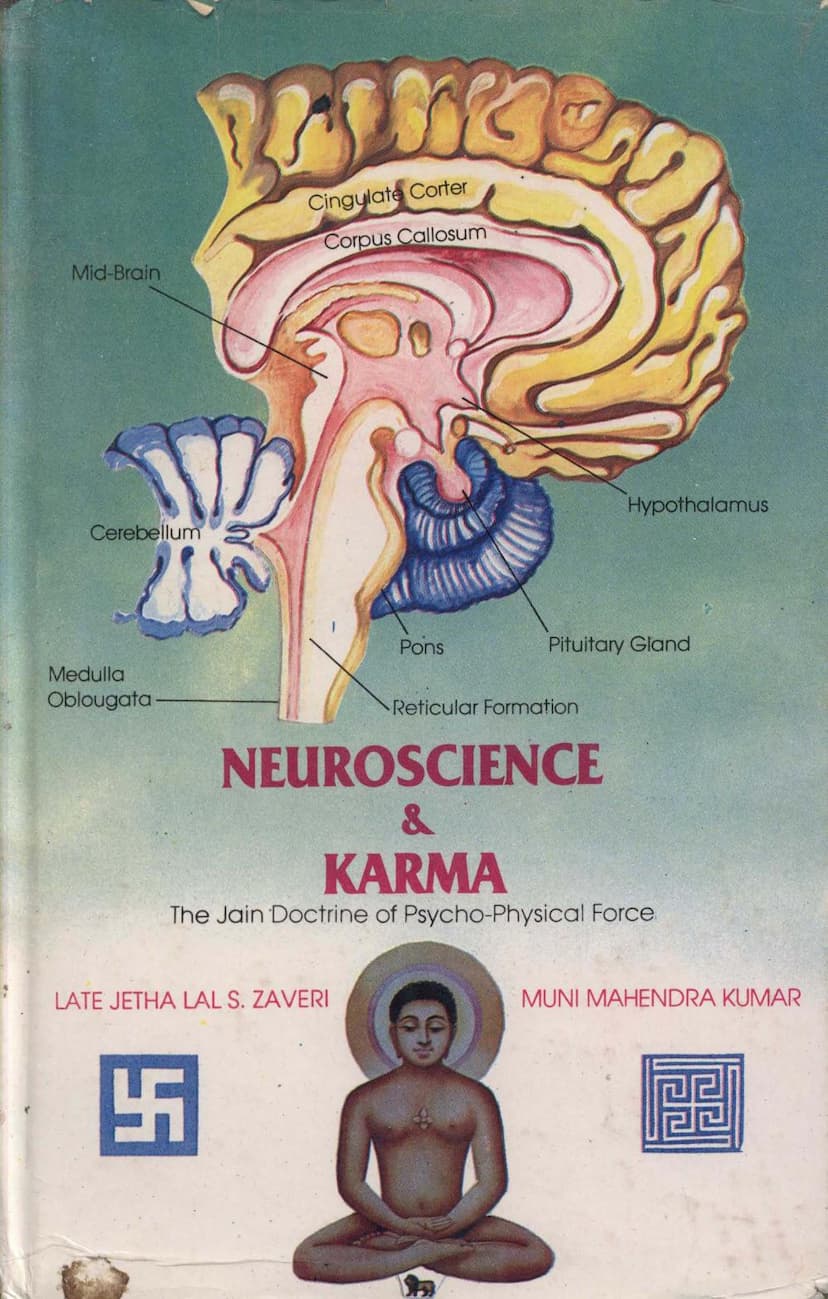Neuroscience And Karma
Added to library: September 2, 2025

Summary
The book "Neuroscience and Karma: The Jain Doctrine of Psycho-Physical Force" by Jethalal S. Zaveri and Muni Mahendra Kumar attempts to bridge the historical and conceptual gap between scientific understanding of the brain and the ancient Jain philosophy of karma.
Core Argument: The authors propose that neuroscience explains how living organisms pursue their aims, while the Jain doctrine of karma explains why. They aim to synthesize these two perspectives, suggesting that modern scientific discoveries can illuminate and expand upon the wisdom contained in ancient Jain texts.
Key Concepts:
- Karma as a Psycho-physical Force: Jainism views karma not as divine judgment, but as a subtle, cyclic psycho-physical force. Past karma leads to the bondage of new karma, creating a continuous cycle.
- The Brain as a Programmed System: Neuroscience reveals the brain as an intricate "enchanted loom" with complex programs encoded in its structure and neural pathways. These programs govern everything from basic biological functions to thought, emotion, and behavior.
- Synthesis of Ancient and Modern: The book explores topics such as:
- The Language of the Brain: How information is coded and processed within the brain, relating it to the subtle "karmic body" in Jain philosophy.
- Programs of Life: How genetic and karmic factors, mediated by the brain, determine life's sequence, including birth, growth, aging, and death.
- Internal Forces: The role of the soul (Jiva) and the "citta" (the animating part of the soul) in animating the physical body and brain, aligning with Jain concepts of vital forces (prānas).
- Biological Principles and Survival: How biological mechanisms, guided by innate programs (samjñās) influenced by karma, ensure survival.
- Rhythmic Living and Living Clocks: The interplay of the nervous and endocrine systems in regulating biological rhythms, and how these are influenced by karma.
- Sleep and Dreaming: The neuroscientific understanding of sleep cycles and dreaming, linked to intuition-obscuring karma (darśanāvāraṇa karman).
- Needs and Nourishment: How primal drives like hunger are regulated by brain centers (hypothalamus) and influenced by karma.
- Knowing, Learning, Memory, and Intelligence: Jain epistemology (theory of knowledge) is discussed alongside scientific understanding of cognitive processes, linking knowledge-obscuring karma (jñānāvaraṇa karman) to the brain's capacity for learning and memory.
- Perception and the Senses: How the brain processes sensory information, including touch, pain, sight, and hearing, and how this relates to feeling-producing karma (vedaniya karman).
- Speech and Language: The neurological basis of language and speech, connecting to the brain's programming.
- Love and Attachment: The neurobiological and hormonal underpinnings of love and attachment, linked to deluding karma (mohaniya karman).
- Art, Architecture, and Aesthetics: The role of art in human life and its connection to the brain's reward systems and emotional responses.
- Religion, Belief, and Worship: The psychological basis of belief and religious practices, and their connection to the brain's programming and deluding karma.
- Fear and Aggression: The neuroscientific explanation of fear and aggression, linking them to the brain's defense mechanisms and certain types of karma.
- Society and Culture: How social behavior, ethics, leadership, and class structures are influenced by inherited predispositions, cultural factors, and status-determining karma (gotra karman).
Authors' Background:
- J.S. Zaveri: An Honorary Professor of the Department of Science of Living at Jain Vishva Bharati Institute, he was well-versed in both modern neuroscience and ancient Jain karma science. He authored several books comparing science and philosophy.
- Muni Mahendra Kumar: A Jain monk and professor, he possesses expertise in various scientific and philosophical disciplines, including meditation. He is also known for his memory skills and research into cosmology.
Overall Goal: The book aims to provide a more integrated understanding of human existence by demonstrating how scientific findings about the brain can validate and enrich the philosophical insights of Jainism, particularly concerning karma and its influence on our actions, thoughts, and experiences. It seeks to bridge the perceived divide between science and spirituality, offering a holistic perspective on human life.